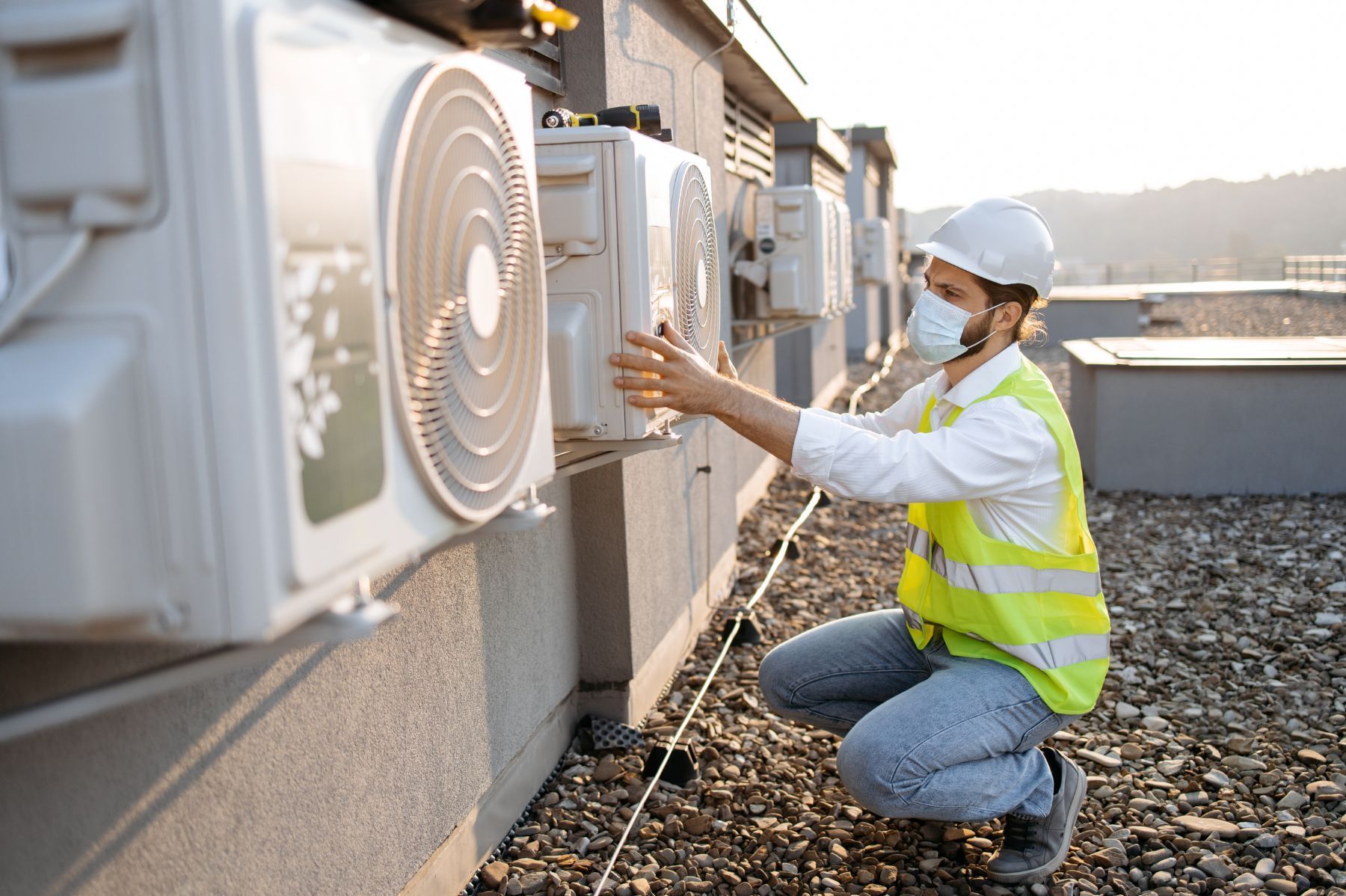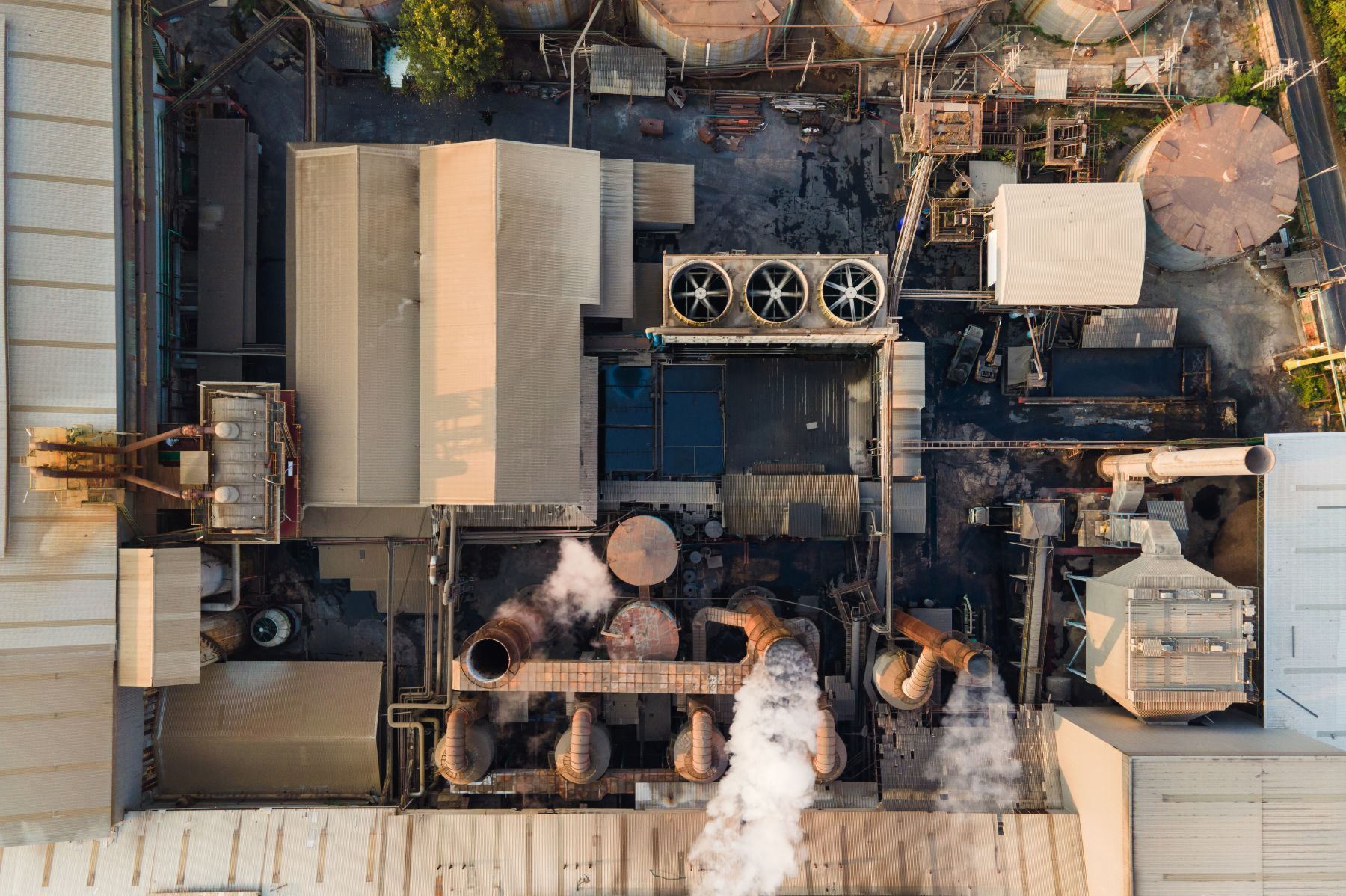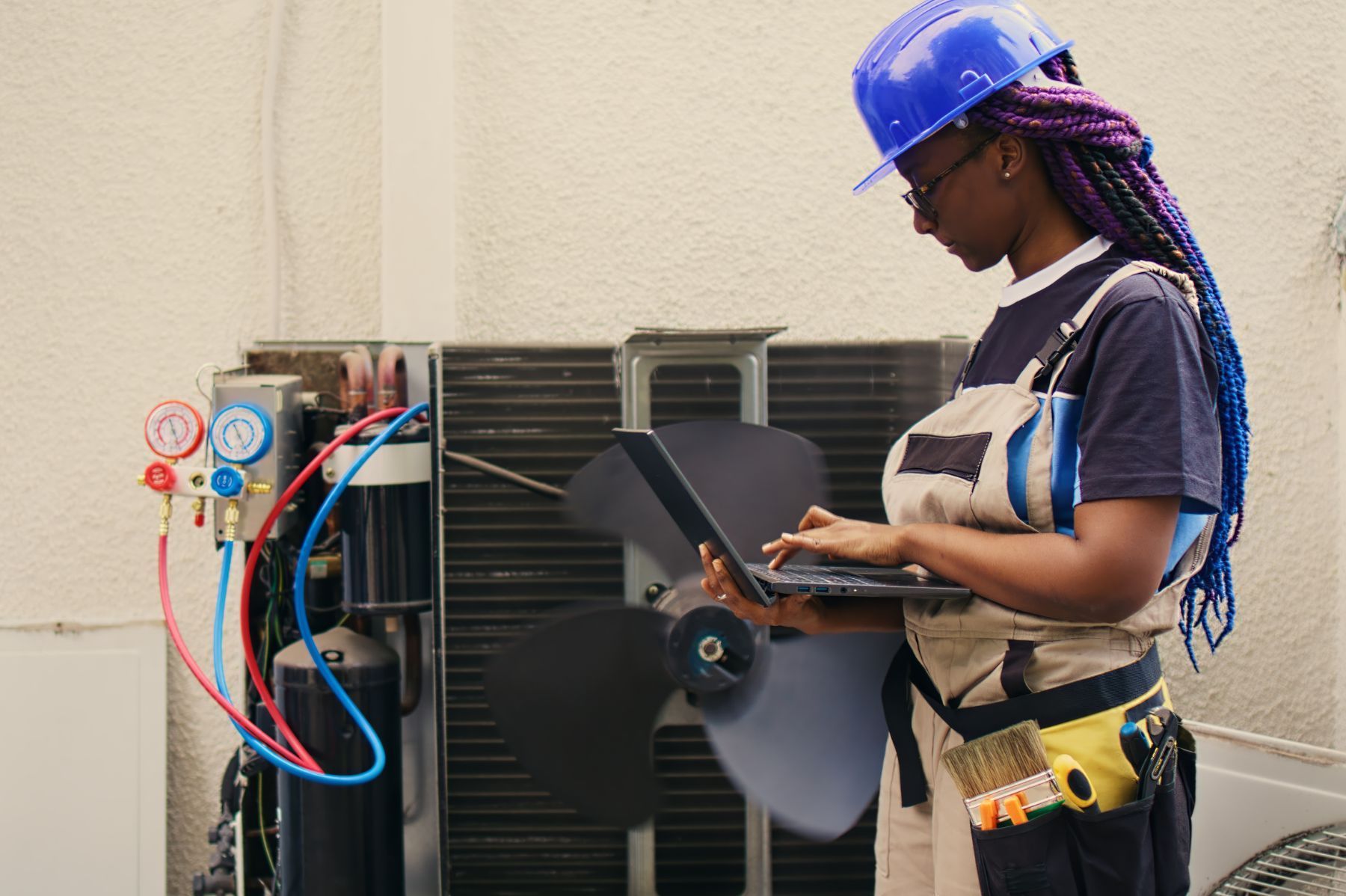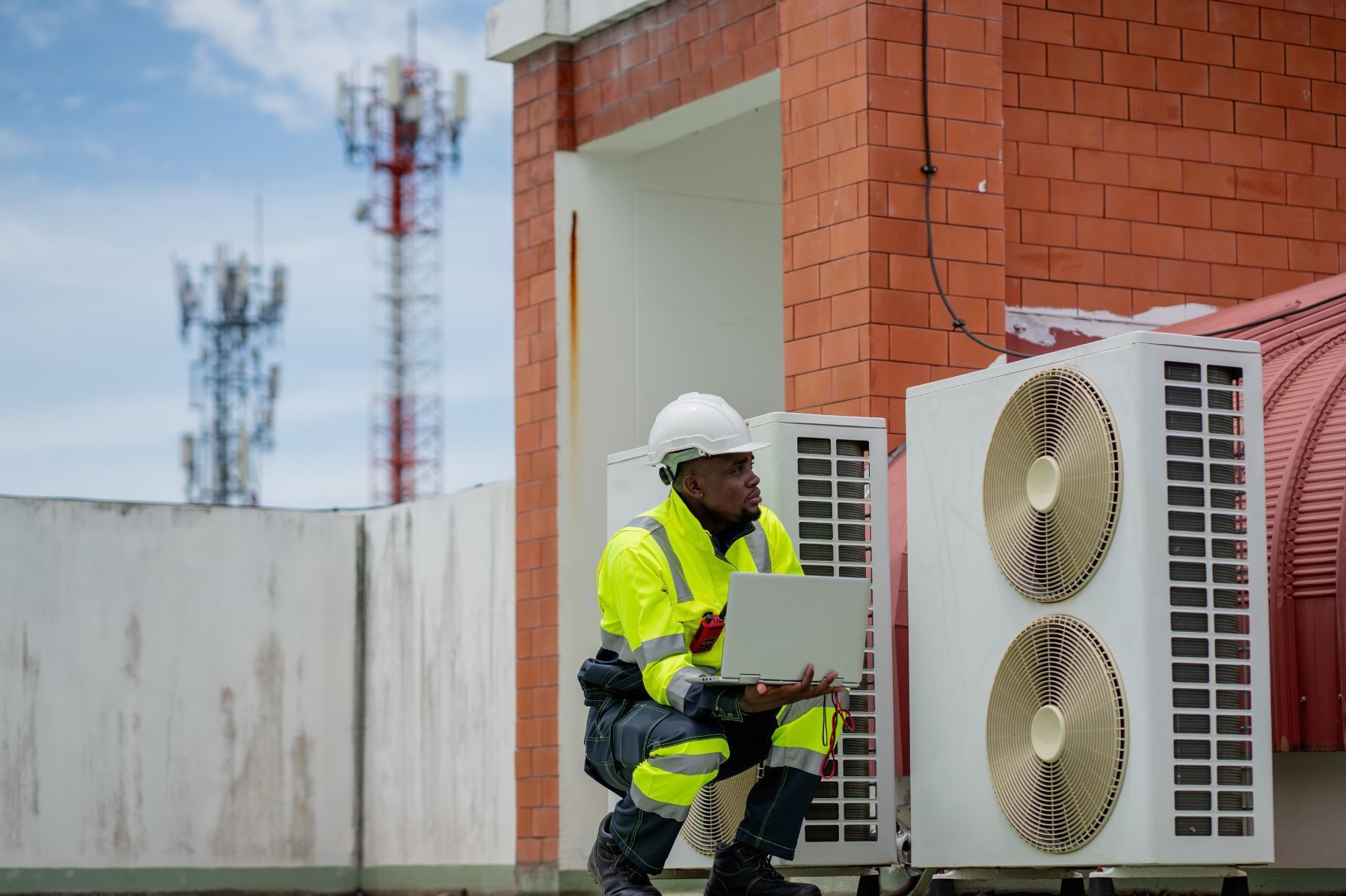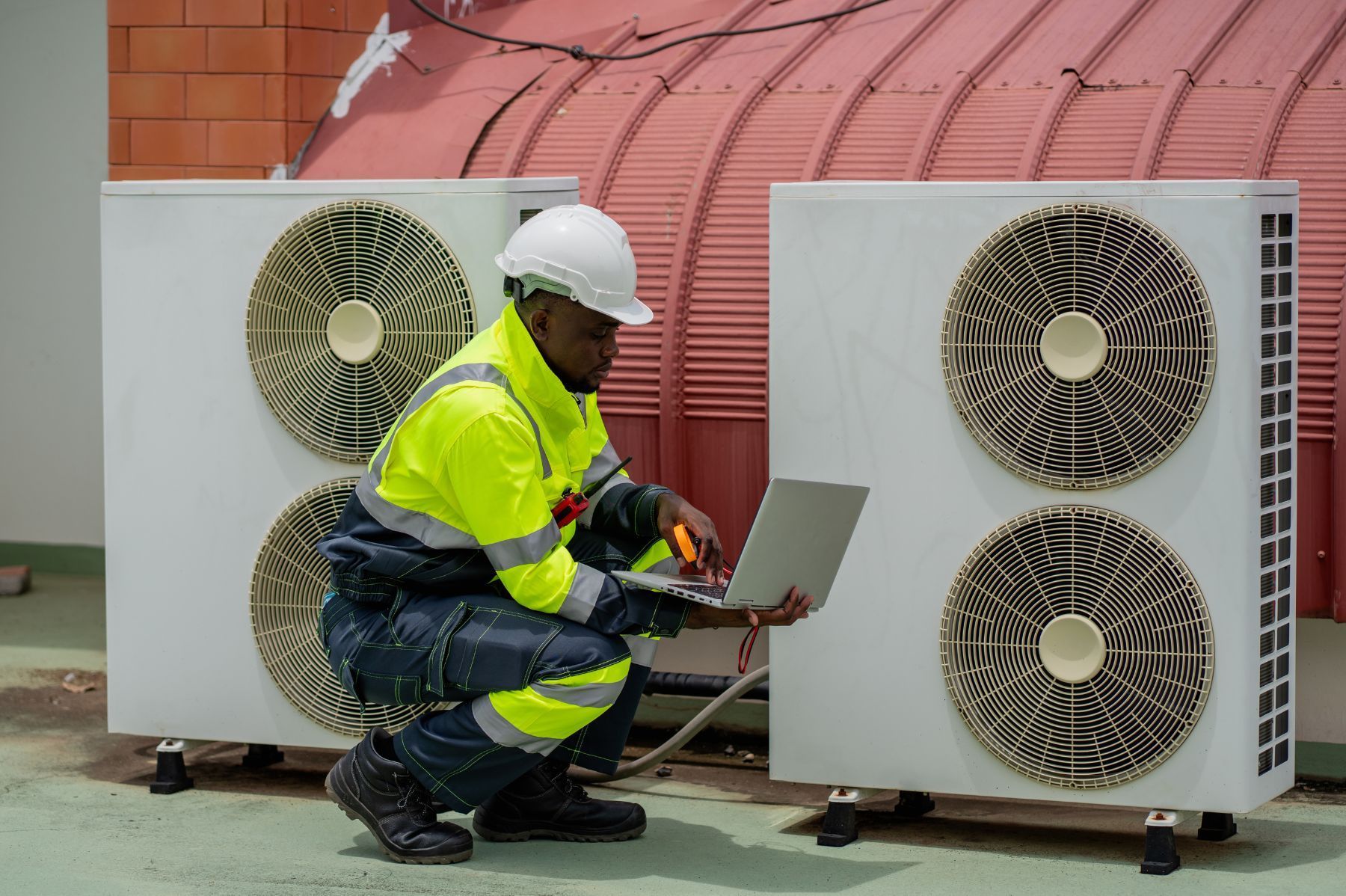Fleet and Vehicle Insurance Made Simple for HVAC Contractors
See How We're Different
or call us: (469) 678-8001

For HVAC contractors, vehicles are more than just transportation-they are mobile workstations, equipment carriers, and often the first impression clients have of the business. Protecting these assets with the right fleet and vehicle insurance is critical. Without it, a single accident or claim can turn into a costly setback, especially given the high stakes involved in HVAC operations.
Understanding how insurance fits into your fleet management strategy can save you thousands and build trust with your customers. The U.S. HVAC market, valued at nearly $96 billion in 2022, continues to grow steadily, and with that growth comes increased exposure to risks related to vehicles and equipment on the road. FieldFactor Blog highlights the importance of insurance transparency as a competitive edge in this expanding market.
Why Fleet and Vehicle Insurance Matters for HVAC Contractors
HVAC contractors rely heavily on their vehicles to transport tools, parts, and technicians to job sites. These vehicles face constant wear and tear, plus the risk of accidents or theft. When a claim arises, it often involves significant costs—HVAC claims average between $25,000 and $50,000 each, with the industry facing over $1 billion in losses annually from vehicle-related incidents alone.
Insurance not only covers the cost of repairs and replacements but also protects against liability claims if an accident causes injury or property damage. For small businesses, which make up about 80% of HVAC contractors in the U.S., these protections are vital. Without adequate coverage, a single incident could jeopardize the entire operation.
Moreover, customers increasingly expect contractors to be fully insured. Transparency about your insurance status builds trust and can be a deciding factor when clients choose between providers. As noted by HVACInsure, consumers now look for convenient access to insurance details online, making it a standard part of doing business.
In addition to the financial protection that fleet and vehicle insurance provides, it can also enhance the overall reputation of an HVAC contractor. When a business is known for its reliability and professionalism, it can lead to increased customer loyalty and referrals. Many contractors find that being fully insured not only protects them in times of crisis but also serves as a marketing tool, showcasing their commitment to quality and safety. This can be particularly important in a competitive market where differentiation is key to attracting new clients.
Furthermore, the nature of HVAC work often involves navigating complex urban environments, where the risk of accidents can be heightened. With the added challenges of traffic, parking, and unpredictable weather conditions, having comprehensive vehicle insurance becomes even more crucial. It allows contractors to focus on their core business—providing top-notch HVAC services—without the constant worry of potential liabilities that could arise from their daily operations. This peace of mind can ultimately lead to better service delivery and customer satisfaction, reinforcing the importance of being adequately insured in this demanding field.
Types of Fleet and Vehicle Insurance for HVAC Businesses
Choosing the right insurance coverage depends on the size of your fleet, the types of vehicles you use, and how you operate. Here are the main types of insurance HVAC contractors should consider:
- Commercial Auto Insurance: Covers vehicles used for business purposes. This includes liability for bodily injury and property damage, collision coverage, and comprehensive protection against theft or vandalism.
- Fleet Insurance: Designed for businesses with multiple vehicles. It often offers cost savings and simplified management by bundling coverage under a single policy.
- Non-Owned and Hired Auto Insurance: Protects your business when employees use their own vehicles or rented vehicles for work-related tasks.
- Equipment Coverage: Some policies extend to tools and equipment inside vehicles, which is crucial for HVAC contractors who carry expensive gear on the road.
Understanding these options helps tailor coverage to your specific risks. For example, a contractor with a dozen service vans will benefit from fleet insurance that streamlines claims and administration, while a smaller operation might focus on comprehensive commercial auto policies.
Additionally, HVAC businesses should also consider the importance of liability insurance, which protects against claims of negligence or accidents that occur during service calls. This type of coverage can be particularly beneficial in the HVAC industry, where working with complex systems can lead to unexpected issues. Furthermore, businesses may want to explore coverage for business interruption, which can provide financial support in the event that a significant incident, such as a natural disaster, temporarily halts operations.
Moreover, as the HVAC industry continues to evolve with advancements in technology and changes in regulations, staying informed about insurance options is essential. For instance, some insurers now offer specialized policies that cater to green HVAC practices, which can cover eco-friendly vehicles or equipment. This not only helps protect the business but also aligns with the growing consumer demand for sustainable practices, potentially opening up new market opportunities.
Managing Risks and Reducing Insurance Costs
Insurance premiums can be a significant expense, but there are ways HVAC contractors can manage risks and reduce costs. Taking proactive steps not only protects your business but can also earn premium credits or rate relief from underwriters.
Implementing driver safety programs, maintaining vehicles regularly, and using telematics to monitor driving behavior are effective strategies. According to WTW, insurers are beginning to reward contractors who adopt these measures with lower premiums as more data supports their effectiveness.
Accurate reporting and claims management also play a role. A recent study found that over 50% of HVAC claims had their causes of loss reclassified after independent assessments, highlighting the importance of objective evaluation in claims handling. This can prevent inflated costs and disputes, keeping insurance costs in check.
Moreover, investing in employee training can significantly mitigate risks associated with equipment handling and customer interactions. Regular workshops and certification programs not only enhance the skills of your workforce but also instill a culture of safety and responsibility. When employees are well-trained, the likelihood of accidents decreases, which can lead to fewer claims and, consequently, lower insurance premiums. Additionally, fostering a positive safety culture can improve employee morale and retention, further benefiting your business in the long run.
Another effective strategy is to conduct regular risk assessments to identify potential hazards within your operations. By systematically evaluating your work environment and processes, you can implement targeted measures to address vulnerabilities before they lead to incidents. This proactive approach not only demonstrates to insurers that you are committed to risk management but can also provide you with insights into operational improvements, ultimately enhancing your service delivery and client satisfaction.
Industry Trends Impacting HVAC Fleet Insurance
The HVAC industry is evolving rapidly, and fleet insurance needs to keep pace. One notable trend is the rise in mergers and acquisitions, with a 6.9% increase in deal volume year-over-year and strategic buyers making up nearly two-thirds of these transactions, according to Capstone Partners. Larger HVAC companies often consolidate fleets, which can affect insurance strategies and bargaining power with insurers. This consolidation not only streamlines operations but also introduces complexities in risk assessment, as larger fleets may have varied operational practices and safety records that insurers must consider when determining premiums.
Energy consumption is another factor. HVAC systems are expected to account for about 40% of total energy use in commercial buildings globally by 2025. This drives demand for newer, more efficient equipment and vehicles, which may affect insurance valuations and coverage needs. As companies invest in advanced technologies like smart thermostats and energy-efficient vehicles, they may also seek insurance policies that reflect these innovations. Insurers are beginning to recognize the value of these upgrades, potentially offering discounts or incentives for businesses that adopt greener practices, thus aligning insurance costs with sustainability efforts.
Lastly, the workforce composition—mostly small businesses with fewer than 20 employees—means many contractors must balance insurance costs with tight budgets. Customized policies that reflect the unique risks of small fleets are increasingly important. Moreover, the increasing prevalence of telematics and fleet management software offers small businesses a way to monitor vehicle usage and driver behavior closely. This data can lead to more accurate risk assessments and tailored insurance solutions, allowing these companies to optimize their coverage while managing expenses effectively. As the HVAC industry continues to adapt to technological advancements and changing market dynamics, the role of insurance will undoubtedly evolve to meet the unique needs of these businesses.
Choosing the Right Insurance Partner
Finding an insurance provider who understands the HVAC industry and your specific fleet needs can make all the difference. Look for partners who offer clear, transparent policies and who actively support contractors in managing risks. A knowledgeable insurer will not only provide coverage tailored to your operations but will also offer insights into industry trends and potential risks, helping you stay ahead of the curve.
Insurance transparency is no longer optional. Contractors who provide easy access to their insurance information online gain a competitive advantage by building client confidence. This aligns with consumer expectations for convenience and trustworthiness, as noted by HVACInsure. In an age where customers expect instant access to information, having a user-friendly online portal can significantly enhance your reputation. Clients appreciate being able to verify coverage details and claims processes at their convenience, which fosters a sense of security and professionalism.
Additionally, an experienced insurer will help you navigate claims efficiently, reducing downtime and financial impact. With HVAC claims averaging tens of thousands of dollars, prompt and fair claims handling is essential. A proactive insurance partner will not only assist you during the claims process but also provide training and resources to help mitigate risks before they escalate into costly incidents. This proactive approach can include safety training for your team, regular equipment inspections, and even risk assessment consultations, all aimed at minimizing potential liabilities and ensuring your business remains operational and profitable.
Moreover, consider the value of an insurer who understands the seasonal fluctuations in the HVAC business. They can offer tailored coverage options that align with your operational cycles, ensuring you are adequately protected during peak seasons when demand—and risk—are higher. This level of customization can be a game-changer, allowing you to focus on delivering excellent service without the constant worry of unforeseen liabilities. By choosing an insurance partner who is not only a provider but also a strategic ally, you can enhance your business resilience and drive long-term success.
What to Remember When Insuring Your HVAC Fleet
Insurance is more than a regulatory requirement. It is a strategic tool that protects your business assets, supports growth, and builds customer trust. For HVAC contractors, fleet and vehicle insurance must be carefully matched to operational realities.
Keep these points in mind:
- Assess your fleet size and vehicle types to select appropriate coverage.
- Implement safety and maintenance programs to lower risks and premiums.
- Choose insurers who understand HVAC-specific challenges and offer transparent policies.
- Stay informed about industry trends that may affect insurance needs and costs.
With the HVAC market continuing to grow and evolve, staying ahead of insurance challenges ensures your business remains resilient and competitive. Additionally, consider the importance of driver training programs. Investing in comprehensive training for your drivers not only enhances safety but can also lead to lower insurance premiums. Insurers often reward businesses that demonstrate a commitment to reducing risk through proactive measures. Furthermore, maintaining detailed records of your fleet’s performance and any incidents can be invaluable when negotiating your insurance terms or filing claims.
Another crucial aspect is understanding the nuances of coverage options available for specialized equipment. HVAC contractors often use unique tools and machinery that may not be covered under standard vehicle insurance policies. Therefore, it is essential to discuss with your insurer about endorsements or additional coverage that can protect these vital assets. This ensures that your business is not left vulnerable in the event of an accident or equipment failure, allowing you to focus on providing excellent service to your clients without the looming threat of financial loss.
Frequently Asked Questions
Q: Do I need commercial auto insurance if I use my personal vehicle for work?
A: Yes. Personal auto insurance usually does not cover business use, so commercial auto insurance or non-owned vehicle coverage is necessary. It's important to understand that if you're using your vehicle to transport clients, equipment, or even just to commute to a job site, your personal policy may not provide the protection you need. This could leave you vulnerable to significant financial loss in the event of an accident.
Q: What is the difference between fleet insurance and commercial auto insurance?
Fleet insurance covers multiple vehicles under one policy, often at a discount, while commercial auto insurance typically covers individual vehicles. Fleet insurance is particularly beneficial for businesses that operate several vehicles, as it simplifies management and can lead to cost savings. Additionally, it often includes features tailored for businesses, such as coverage for hired and non-owned vehicles, which can be crucial for companies that frequently rent or lease vehicles.
Q: Can I get insurance coverage for the tools and equipment in my vehicles?
Yes. Many commercial auto policies offer equipment coverage or you can add a separate inland marine policy to protect tools on the road. This is especially important for tradespeople like electricians or plumbers, whose tools can represent a significant investment. Having this coverage ensures that if your tools are damaged or stolen while in transit, you can replace them without a huge financial burden.
Q: How can I lower my fleet insurance premiums?
Implement driver safety programs, maintain your vehicles regularly, and consider telematics to monitor driving habits. These steps can qualify you for premium discounts. Additionally, training your drivers on safe driving practices and the importance of vehicle maintenance can not only reduce insurance costs but also enhance overall safety and efficiency within your fleet. Insurers often look favorably on businesses that demonstrate a commitment to risk management.
Q: What should I do if I have a vehicle accident while on the job?
A: Report the incident to your insurance provider promptly, document the scene, and cooperate with any investigations to ensure a smooth claims process. It's also advisable to gather contact information from any witnesses and take photos of the accident scene. This documentation can be invaluable when filing a claim and can help establish the facts of the incident, which may expedite the claims process.
Q: Are small HVAC businesses at a disadvantage when buying fleet insurance?
A: Not necessarily. Many insurers offer policies tailored to small fleets, and proactive risk management can help secure competitive rates. Small businesses can leverage their size to negotiate better terms, particularly if they maintain a good driving record and demonstrate responsible business practices. Additionally, some insurers provide specialized coverage options that cater specifically to the unique needs of HVAC businesses, ensuring that they are adequately protected against industry-specific risks.






